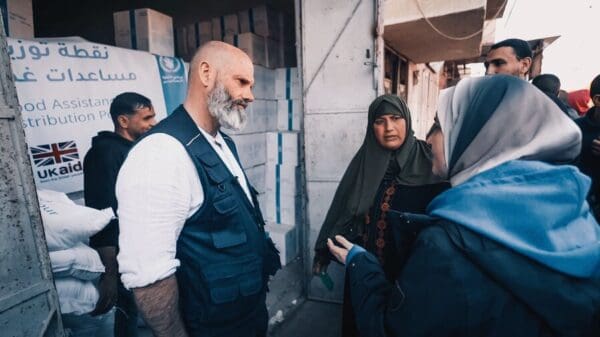Female Farmers Are Breaking Men’s “Economic Control” Over Women in Nicaragua
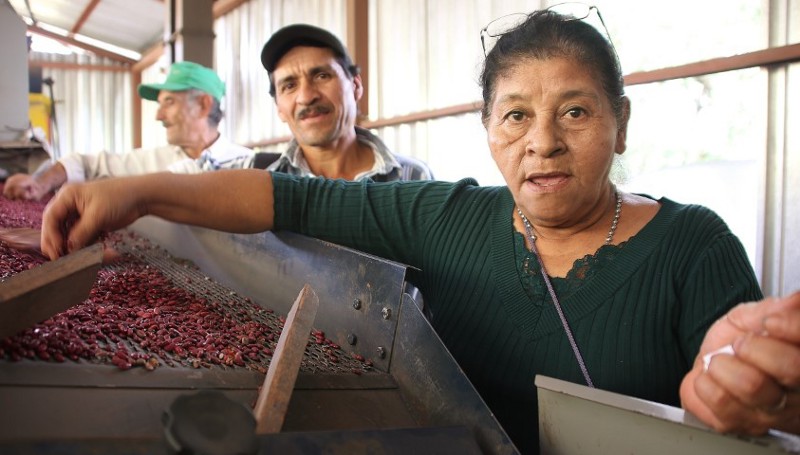
“Economic control” is a term used in Nicaragua to describe a form of sexism in relationships whereby the male member of the household controls all the money and material goods. Under these circumstances, household work is not highly valued and women are typically prohibited from assuming leadership roles in technical, professional and/or productive fields.
Here, two Nicaraguan women explain how they overcame these old sexist paradigms and strengthened their relationships with their husbands.

Pastora Sevilla with her husband Juan Adolfo in the cooperative in the beginning of the processing of their beans.
“There are men who do not value women’s work. We always had to stay in the house, cooking, cleaning, washing while they went out to the street to have fun. We also have rights,” said Pastora Sevilla, 66, when she gave her testimony to a group of women farmers in Condega, in the region of Estelí, Nicaragua.
Until recently, Sevilla, a small corn and bean farmer, was embarrassed to speak in public.
“In meetings I hid in corners because I did not want to be asked anything. I trembled and froze. Now I always feel comfortable and take the floor,” she says.
Sevilla is now a partner producer of the Multifunctional Cooperative “Peace and Reconciliation”.
30-year-old Mary Luz Matute, a member of the New Horizon Cooperative, owned land because she inherited it from her father, but it was her husband Eliú Cárcamo, 31, who was in charge of tending to it and managing the money from the harvest. Mary Luz also did not participate in the decision-making at home.
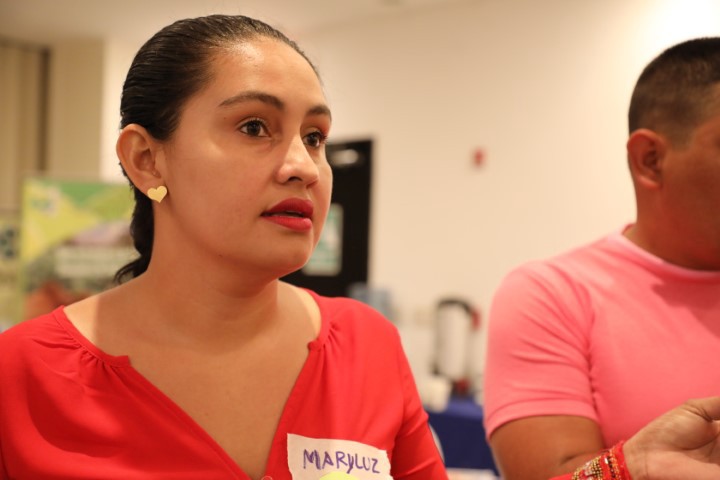
Mary Luz speaks at a meeting of small-holder female and male farmers.
“I did not know anything about land or supplies. But us women must empower ourselves, have opinions and succeed in order not to depend on our husbands, because there have been cases where the couple separates and the woman is left with nothing. Empowered, we know how to work and we have what we need to survive,” says Mary Luz.
The World Food Programme (WFP) initiated the Strategy for the Promotion of the Economic Empowerment of Women to support small-scale female farmers and increase their productivity, quality and access to markets.
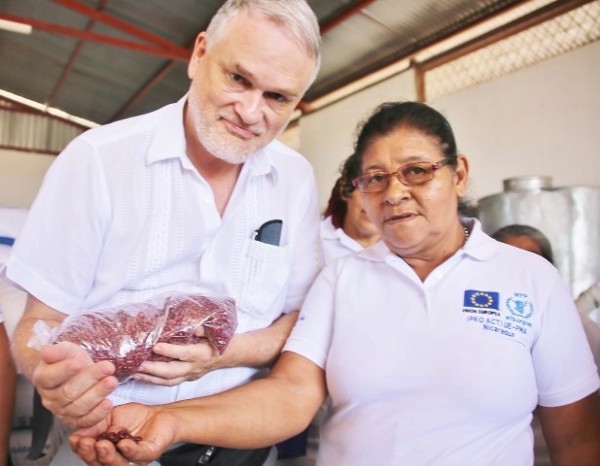
A farmer shares information about her harvest with the Ambassador of the European Union, Kenneth Bell, during a visit he made to her cooperative.
Under this initiative, female farmers have strengthened their skills in marketing, finance, and business planning, as well as in the recording of income and expenses, total cost of production, negotiation and use of credit. The initiative also covered issues such as gender, leadership, self-esteem, gender-based violence, human rights, and others.
You gain confidence and you learn to manage the land
Mary Luz and Pastora participated in the meetings and workshops of the Women’s Economic Empowerment Group. “With these workshops I gained confidence. I learned how to manage my land and decided to start with corn. I did well, and decided to plant beans too. I felt empowered. Now I know how much it costs me to produce each harvest and how much I have to sell it for to make a profit,” says Mary Luz, now proud to tend to her land, manage her income and be the owner of a cow that produces milk for the family.
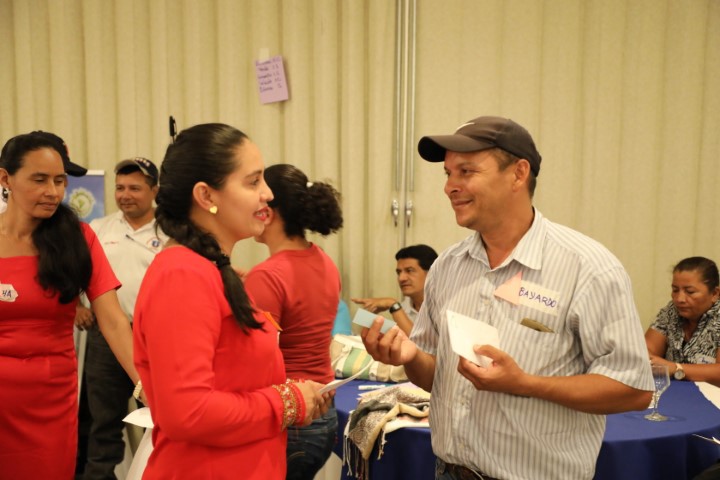
The integration of women into organizations of small-holder farmers strengthens their knowledge and skills.
A few years ago, Pastora would wake up at 2am like her husband, Juan Adolfo Benavidez. “I would feed him and sometimes I would go with him to the plantation and would help harvest the crops. But then the harvest would be sold and I wouldn’t see any of the proceeds,” she says.
“After learning about gender-based issues, I began to change. I even told my husband that he had to go with me to the workshops so that he could learn,” she says.
Pastora has already bought a house, set up a business and saves half of everything she earns for her future and that of her family, including her four children whom she sent to study at the university.
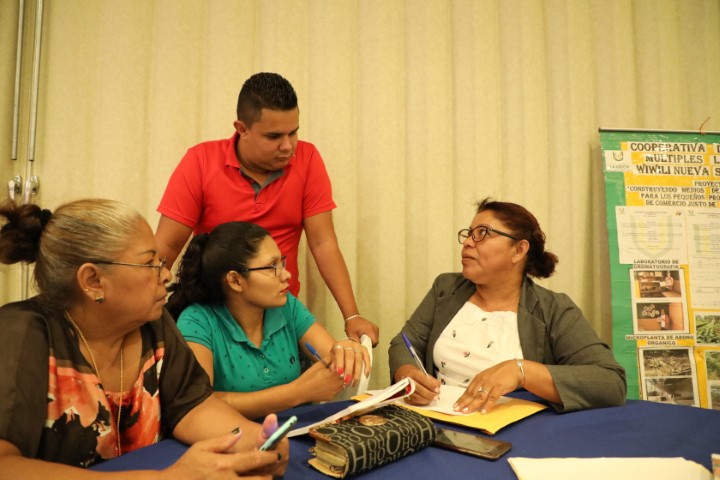
Economic empowerment is fundamental to achieving gender equality.
But these farmers have not only appropriated the new knowledge, they are also sharing it with their husbands and have strengthened their relationships. Pastora and Mary Luz now work the land with their husbands, use the new farming techniques, make joint decisions and manage the household income together, breaking the old paradigms of economic control of man over woman.
This story was written by Sabrina Quezada Ardila and originally appeared on WFP’s Insights.




